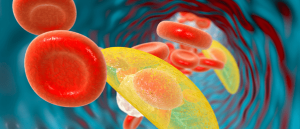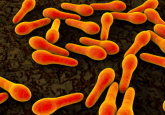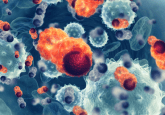Don’t stress! It accelerates immune aging

Stress seems to be an unavoidable part of life but new research is shedding light on just how much it affects our immune system as we age.
Lead author Eric Klopack and fellow researchers from the University of Southern California (USC; CA, USA) have confirmed another reason why stress is bad for human health. In this study, they demonstrated that stress accelerates immune aging, which has the potential to increase the person’s risk of infection and cancer.
As we age, our immune systems undergo a natural downregulation as fewer and fewer new white blood cells are present, a process called immunosenescence. However, this process can be accelerated by everyday stressors related to work as well as traumatic events and discrimination. By focusing on the effect of stress, this study aims to address why same-age adults can experience drastically different health issues.
“As the world’s population of older adults increases, understanding disparities in age-related health is essential. Age-related changes in the immune system play a critical role in declining health,” reports Eric Klopack. “This study helps clarify mechanisms involved in accelerated immune aging.”
 New study identifies subset of T cells that regulate the immune system
New study identifies subset of T cells that regulate the immune system
Researchers find that blocking the checkpoint protein PD-L1 unexpectedly activates regulatory T cells (effector Tregs), reducing the ability of the immune system to fight off infections.
Researchers collected surveys from 5,744 adults over the age of 50. The surveys assessed participants’ experiences with chronic stress, stressful life events and discrimination. They also utilized flow cytometry to analyze blood samples taken from these participants. The researchers demonstrated that those who scored higher on the stress survey showed lower levels of new white blood cells and higher levels of older white blood cells, indicating that stress and immune aging are linked.
Even after controlling for lifestyle factors, such as diet and exercise habits, the association between stress and fewer new white blood cells was only slightly less strong; lifestyle choices are related to stress and do play a role in accelerated immune aging. Klopack explains, “In this study, after statistically controlling for poor diet and low exercise, the connection between stress and accelerated immune aging wasn’t as strong. What this means is people who experience more stress tend to have poorer diet and exercise habits, partly explaining why they have more accelerated immune aging.”
One possible target for intervention might be cytomegalovirus (CMV), which is common in humans and known to accelerate immune aging. It lies dormant until triggered, most frequently by periods of extreme stress. When researchers statistically controlled for CMV positivity, they found a weakened connection between stress and accelerated immune aging. This finding suggests that CMV vaccination may be a simple, powerful intervention for reducing the effects of stress on the immune system.
Understanding the intertwined role of stress and lifestyle choices in accelerating immune aging provides valuable insights into the health disparities among same-age adults. This sort of research could partly explain why some adults were affected by COVID-19 more than other adults, for example. The current study sheds light on how we might be able to mitigate this accelerating immune aging: learning to manage stress in addition to monitoring diet and exercise.





